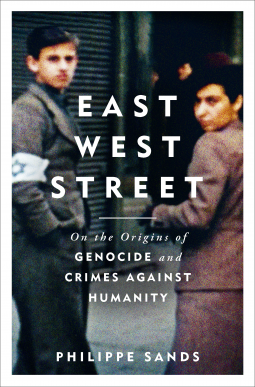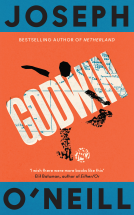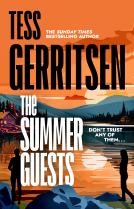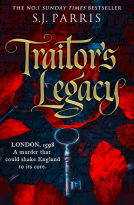
East West Street
On the Origins of Genocide and Crimes Against Humanity
by Philippe Sands
This title was previously available on NetGalley and is now archived.
Send NetGalley books directly to your Kindle or Kindle app
1
To read on a Kindle or Kindle app, please add kindle@netgalley.com as an approved email address to receive files in your Amazon account. Click here for step-by-step instructions.
2
Also find your Kindle email address within your Amazon account, and enter it here.
Pub Date 26 May 2016 | Archive Date 24 Apr 2017
Description
'A monumental achievement: profoundly personal, told with love, anger and great precision' - John le Carré
When human rights lawyer Philippe Sands received an invitation to deliver a lecture in the western Ukrainian city of Lviv, he began to uncover a series of extraordinary historical coincidences. It set him on a quest that would take him halfway around the world in an exploration of the origins of international law and the pursuit of his own secret family history, beginning and ending with the last day of the Nuremberg Trials.
Part historical detective story, part family history, part legal thriller, Philippe Sands guides us between past and present as several interconnected stories unfold in parallel. The first is the hidden story of two Nuremberg prosecutors who discover, only at the end of the trials, that the man they are prosecuting may be responsible for the murder of their entire families in Nazi-occupied Poland, in and around Lviv. The two prosecutors, Hersch Lauterpacht and Rafael Lemkin, were remarkable men, whose efforts led to the inclusion of the terms 'crimes against humanity' and 'genocide' in the judgement at Nuremberg. The defendant, Hans Frank, Hitler's personal lawyer and Governor-General of Nazi-occupied Poland, turns out to be an equally compelling character.
The lives of these three men lead Sands to a more personal story, as he traces the events that overwhelmed his mother's family in Lviv and Vienna during the Second World War. At the heart of this book is an equally personal quest to understand the roots of international law and the concepts that have dominated Sands' work as a lawyer. Eventually, he finds unexpected answers to his questions about his family, in this powerful meditation on the way memory, crime and guilt leave scars across generations, and the haunting gaps left by the secrets of others.
Advance Praise
‘A monumental achievement: profoundly personal, told with love, anger and great precision’ - John le Carré
‘In a triumph of astonishing research, Sands has brilliantly woven together several family stories which lead to the great denouement at the Nuremberg tribunal. No novel could possibly match such an important work of truth’ - Antony Beevor
‘EAST WEST STREET is a strange and beautiful object: at once a genealogy of international human rights law, and a delicate family portrait. The common element to this apparently unrelated pair is genocidal persecution - and other assorted horrors of twentieth century history. It is meticulous, moving and compulsive’ - Adam Thirlwell
‘A book like no other I have ever read - unputdownable and unforgettable’ - Orlando Figes
‘Astonishing and important’ - Louis Begley
‘This remarkable book is partly a lawyer's quest to understand the roots of international law (one that is surprisingly fascinating for the non-legal reader) and a riveting family memoir’ - THE BOOKSELLER, Book of the Month
‘EAST WEST STREET pulls off the considerable feat of interweaving the lives of these three men with a brief history of international law and its origins, and some profoundly moving revelations about Sands' own forebears ... [It] is also an eminently topical book because it directly considers the impact of the past on our present’ - Caroline Sanderson, THE BOOKSELLER
‘An engrossing tale of family secrets and groundbreaking legal precedents ... a tense, riveting melding of memoir and history ... From letters, photographs, and deeply revealing interviews, the author portrays Nazi persecutions in shattering detail ... For the future of humanity, forgetting, Sands insists in this vastly important book, is not an option’ - KIRKUS REVIEWS, starred review
‘Gripping ... This fascinating account of forgetting, forgiving and moving on ... achieves a balance between the individual and the political that brings the events of the Holocaust into new focus. ... [A] compelling work with unforgettable characters’ - LIBRARY JOURNAL
‘This book transcends genre, breaking convention to create something fascinating and engrossing. Sands manages to weave the most personal of stories through the most globally impactful: the inclusion of the term "crimes against humanity" in the judgement at Nuremberg’ - Steven Cooper of Waterstones, THE BOOKSELLER
Available Editions
| EDITION | Hardcover |
| ISBN | 9781474601900 |
| PRICE | £20.00 (GBP) |


















